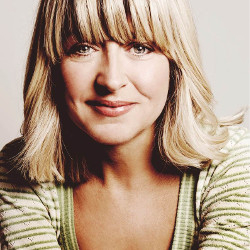My First Play… Alecky Blythe

© Idil Sukan
The first play I experienced took place in my second-form Speech and Drama class. It was my favourite class, run by the formidable Mrs Blythe. Tall and elegant, and an actress in her youth, she injected into her teaching the same passion and theatricality that I imagine she must have put into every part. She used to ruthlessly critique our poetry recitals, regardless of our delicate age or demeanour. I feared and adored her in equal measure.
One particular week, we were treated to a performance of a Joyce Grenfell monologue from George, Don’t Do That! by one of the older girls, who was in need of a group of seven-year-olds on whom to rehearse. I sat cross-legged on the floor along with my classmates and listened in wide-eyed wonder. I found myself completely transported to Grenfell’s world of naughty children and truly believed I had become one of them. This to me seemed quite different from the poetry recitals I had heard in class before, as this time, even though I was still just listening, I was actively engaged in listening rather than passively, and that was how the spell was cast. When I later discovered that some people made a living out of this magic called ‘make-believe’, I knew that was what I wanted to do with my life.
Twenty years on, despite not exactly making what anyone could call a living out of it, my childhood dream remained strong. So in the absence of work coming to me, I decided to create my own to appear in. My first play was Come Out Eli, inspired by a verbatim workshop run by Mark Wing-Davey at the Actors Centre. I had an idea to make a play about fear, so I ventured out to situations that I hoped would give way to conversations around the subject. As luck would have it, a siege taking hold just round the corner from where I had recently moved to in Hackney provided the perfect setting.
Armed with a microphone, a smile and a bucket load of determination, I recorded conversations with curious onlookers, intrigued and perturbed by the police cordon that was infringing on their everyday lives. The police decided not to storm the block of bedsits where Eli Hall, the gunman, was holed up with a hostage, mistakenly thinking he would eventually come out. It was not until fifteen days later that the stand-off ended with a shoot-out between Eli and the police, in which Eli took his own life. During those fifteen days I visited the cordon many times, collecting material that was to document the story of how the immediate community was affected by this extraordinary event.
Once it was over, I visited nearby residents to incorporate their version of events and to fill in some of the gaping holes in my narrative. Most notably, owing to my day job, temping as a receptionist, I had missed its dramatic conclusion, which came to a spectacular climax after Eli’s death with the whole block burning down. The final piece of the jigsaw that I needed was an interview with the hostage, who had escaped after eleven days. However, brokering the deal for his payment in return for an interview took the play in a most unexpected direction.
Having previously spoken to some of the major papers and channels, which must have rewarded him handsomely financially for his story, the hostage was not willing to talk to me for no fee, as my very limited production budget could not afford one, so he asked me over the phone if I would instead pay by sleeping with him. Not knowing whether I would ever get to meet him for an interview, I recorded my side of the conversations in case these were to be my only contact and insight into this man. Fortunately, we did come to an eventual agreement that involved lunch on me at Wetherspoons, £50 and no sex. The phone encounters provided a most surprising and illuminating opening to the show, allowing the audience a window into the verbatim process and a furtive introduction to the world of the siege.
I don’t think Mrs Blythe would have ever imagined where her Speech and Drama classes could lead to, but I hope she would be pleased with the outcome if she had been around to witness it. It strikes me only now that even though on the surface Joyce Grenfell’s nursery monologues and a verbatim play about the Hackney siege do not appear to have much in common, they both rely heavily on direct address requiring the very active engagement of the audience, so perhaps verbatim theatre was a natural progression for me.
It was only shortly before making Come Out Eli that I changed my stage name, adopting my inspirational teacher’s, so Mrs Blythe’s Speech and Drama classes are never very far from me, and that serves as a great comfort when needed in this precarious business.

My First Play is published by Nick Hern Books. For a 25% discount and free UK p&p (total price £7.49), enter the code WOS FIRST at checkout when buying at nickhernbooks.co.uk/my-first-play










